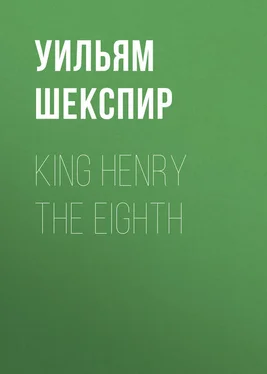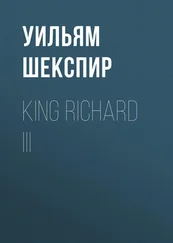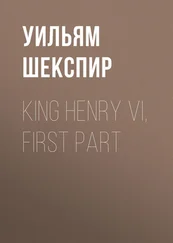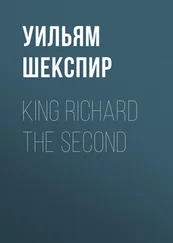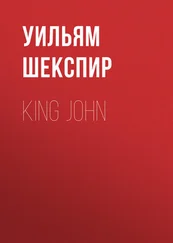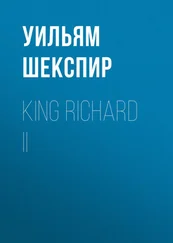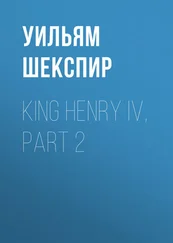Уильям Шекспир - King Henry the Eighth
Здесь есть возможность читать онлайн «Уильям Шекспир - King Henry the Eighth» — ознакомительный отрывок электронной книги совершенно бесплатно, а после прочтения отрывка купить полную версию. В некоторых случаях можно слушать аудио, скачать через торрент в формате fb2 и присутствует краткое содержание. Жанр: Европейская старинная литература, Драматургия, foreign_dramaturgy, на английском языке. Описание произведения, (предисловие) а так же отзывы посетителей доступны на портале библиотеки ЛибКат.
- Название:King Henry the Eighth
- Автор:
- Жанр:
- Год:неизвестен
- ISBN:нет данных
- Рейтинг книги:4 / 5. Голосов: 1
-
Избранное:Добавить в избранное
- Отзывы:
-
Ваша оценка:
- 80
- 1
- 2
- 3
- 4
- 5
King Henry the Eighth: краткое содержание, описание и аннотация
Предлагаем к чтению аннотацию, описание, краткое содержание или предисловие (зависит от того, что написал сам автор книги «King Henry the Eighth»). Если вы не нашли необходимую информацию о книге — напишите в комментариях, мы постараемся отыскать её.
King Henry the Eighth — читать онлайн ознакомительный отрывок
Ниже представлен текст книги, разбитый по страницам. Система сохранения места последней прочитанной страницы, позволяет с удобством читать онлайн бесплатно книгу «King Henry the Eighth», без необходимости каждый раз заново искать на чём Вы остановились. Поставьте закладку, и сможете в любой момент перейти на страницу, на которой закончили чтение.
Интервал:
Закладка:
William Shakespeare
King Henry the Eighth
KING HENRY THE EIGHTH
CARDINAL WOLSEY CARDINAL CAMPEIUS
CAPUCIUS, Ambassador from the Emperor Charles V
CRANMER, ARCHBISHOP OF CANTERBURY
DUKE OF NORFOLK DUKE OF BUCKINGHAM
DUKE OF SUFFOLK EARL OF SURREY
LORD CHAMBERLAIN LORD CHANCELLOR
GARDINER, BISHOP OF WINCHESTER
BISHOP OF LINCOLN LORD ABERGAVENNY
LORD SANDYS SIR HENRY GUILDFORD
SIR THOMAS LOVELL SIR ANTHONY DENNY
SIR NICHOLAS VAUX SECRETARIES to Wolsey
CROMWELL, servant to Wolsey
GRIFFITH, gentleman-usher to Queen Katharine
THREE GENTLEMEN
DOCTOR BUTTS, physician to the King
GARTER KING-AT-ARMS
SURVEYOR to the Duke of Buckingham
BRANDON, and a SERGEANT-AT-ARMS
DOORKEEPER Of the Council chamber
PORTER, and his MAN PAGE to Gardiner
A CRIER
QUEEN KATHARINE, wife to King Henry, afterwards divorced
ANNE BULLEN, her Maid of Honour, afterwards Queen
AN OLD LADY, friend to Anne Bullen
PATIENCE, woman to Queen Katharine
Lord Mayor, Aldermen, Lords and Ladies in the Dumb Shows; Women attending upon the Queen; Scribes, Officers, Guards, and other Attendants; Spirits
SCENE:
London; Westminster; Kimbolton
THE PROLOGUE
I come no more to make you laugh; things now
That bear a weighty and a serious brow,
Sad, high, and working, full of state and woe,
Such noble scenes as draw the eye to flow,
We now present. Those that can pity here
May, if they think it well, let fall a tear:
The subject will deserve it. Such as give
Their money out of hope they may believe
May here find truth too. Those that come to see
Only a show or two, and so agree
The play may pass, if they be still and willing,
I'll undertake may see away their shilling
Richly in two short hours. Only they
That come to hear a merry bawdy play,
A noise of targets, or to see a fellow
In a long motley coat guarded with yellow,
Will be deceiv'd; for, gentle hearers, know,
To rank our chosen truth with such a show
As fool and fight is, beside forfeiting
Our own brains, and the opinion that we bring
To make that only true we now intend,
Will leave us never an understanding friend.
Therefore, for goodness sake, and as you are known
The first and happiest hearers of the town,
Be sad, as we would make ye. Think ye see
The very persons of our noble story
As they were living; think you see them great,
And follow'd with the general throng and sweat
Of thousand friends; then, in a moment, see
How soon this mightiness meets misery.
And if you can be merry then, I'll say
A man may weep upon his wedding-day.
ACT I. SCENE 1
London. The palace
Enter the DUKE OF NORFOLK at one door; at the other, the DUKE OF BUCKINGHAM and the LORD ABERGAVENNY
BUCKINGHAM. Good morrow, and well met. How have ye done
Since last we saw in France?
NORFOLK. I thank your Grace,
Healthful; and ever since a fresh admirer
Of what I saw there.
BUCKINGHAM. An untimely ague
Stay'd me a prisoner in my chamber when
Those suns of glory, those two lights of men,
Met in the vale of Andren.
NORFOLK. 'Twixt Guynes and Arde-
I was then present, saw them salute on horseback;
Beheld them, when they lighted, how they clung
In their embracement, as they grew together;
Which had they, what four thron'd ones could have weigh'd
Such a compounded one?
BUCKINGHAM. All the whole time
I was my chamber's prisoner.
NORFOLK. Then you lost
The view of earthly glory; men might say,
Till this time pomp was single, but now married
To one above itself. Each following day
Became the next day's master, till the last
Made former wonders its. To-day the French,
All clinquant, all in gold, like heathen gods,
Shone down the English; and to-morrow they
Made Britain India: every man that stood
Show'd like a mine. Their dwarfish pages were
As cherubins, an gilt; the madams too,
Not us'd to toil, did almost sweat to bear
The pride upon them, that their very labour
Was to them as a painting. Now this masque
Was cried incomparable; and th' ensuing night
Made it a fool and beggar. The two kings,
Equal in lustre, were now best, now worst,
As presence did present them: him in eye
still him in praise; and being present both,
'Twas said they saw but one, and no discerner
Durst wag his tongue in censure. When these suns-
For so they phrase 'em-by their heralds challeng'd
The noble spirits to arms, they did perform
Beyond thought's compass, that former fabulous story,
Being now seen possible enough, got credit,
That Bevis was believ'd.
BUCKINGHAM. O, you go far!
NORFOLK. As I belong to worship, and affect
In honour honesty, the tract of ev'rything
Would by a good discourser lose some life
Which action's self was tongue to. All was royal:
To the disposing of it nought rebell'd;
Order gave each thing view. The office did
Distinctly his full function.
BUCKINGHAM. Who did guide-
I mean, who set the body and the limbs
Of this great sport together, as you guess?
NORFOLK. One, certes, that promises no element
In such a business.
BUCKINGHAM. I pray you, who, my lord?
NORFOLK. All this was ord'red by the good discretion
Of the right reverend Cardinal of York.
BUCKINGHAM. The devil speed him! No man's pie is freed
From his ambitious finger. What had he
To do in these fierce vanities? I wonder
That such a keech can with his very bulk
Take up the rays o' th' beneficial sun,
And keep it from the earth.
NORFOLK. Surely, sir,
There's in him stuff that puts him to these ends;
For, being not propp'd by ancestry, whose grace
Chalks successors their way, nor call'd upon
For high feats done to th' crown, neither allied
To eminent assistants, but spider-like,
Out of his self-drawing web, 'a gives us note
The force of his own merit makes his way-
A gift that heaven gives for him, which buys
A place next to the King.
ABERGAVENNY. I cannot tell
What heaven hath given him-let some graver eye
Pierce into that; but I can see his pride
Peep through each part of him. Whence has he that?
If not from hell, the devil is a niggard
Or has given all before, and he begins
A new hell in himself.
BUCKINGHAM. Why the devil,
Upon this French going out, took he upon him-
Without the privity o' th' King-t' appoint
Who should attend on him? He makes up the file
Of all the gentry; for the most part such
To whom as great a charge as little honour
He meant to lay upon; and his own letter,
The honourable board of council out,
Must fetch him in he papers.
ABERGAVENNY. I do know
Kinsmen of mine, three at the least, that have
By this so sicken'd their estates that never
They shall abound as formerly.
BUCKINGHAM. O, many
Have broke their backs with laying manors on 'em
For this great journey. What did this vanity
But minister communication of
A most poor issue?
NORFOLK. Grievingly I think
The peace between the French and us not values
The cost that did conclude it.
BUCKINGHAM. Every man,
After the hideous storm that follow'd, was
A thing inspir'd, and, not consulting, broke
Into a general prophecy-that this tempest,
Dashing the garment of this peace, aboded
The sudden breach on't.
NORFOLK. Which is budded out;
For France hath flaw'd the league, and hath attach'd
Our merchants' goods at Bordeaux.
ABERGAVENNY. Is it therefore
Th' ambassador is silenc'd?
NORFOLK. Marry, is't.
ABERGAVENNY. A proper tide of a peace, and purchas'd
At a superfluous rate!
BUCKINGHAM. Why, all this business
Our reverend Cardinal carried.
NORFOLK. Like it your Grace,
The state takes notice of the private difference
Betwixt you and the Cardinal. I advise you-
And take it from a heart that wishes towards you
Honour and plenteous safety-that you read
The Cardinal's malice and his potency
Together; to consider further, that
What his high hatred would effect wants not
A minister in his power. You know his nature,
That he's revengeful; and I know his sword
Hath a sharp edge-it's long and't may be said
It reaches far, and where 'twill not extend,
Thither he darts it. Bosom up my counsel
You'll find it wholesome. Lo, where comes that rock
That I advise your shunning.
Интервал:
Закладка:
Похожие книги на «King Henry the Eighth»
Представляем Вашему вниманию похожие книги на «King Henry the Eighth» списком для выбора. Мы отобрали схожую по названию и смыслу литературу в надежде предоставить читателям больше вариантов отыскать новые, интересные, ещё непрочитанные произведения.
Обсуждение, отзывы о книге «King Henry the Eighth» и просто собственные мнения читателей. Оставьте ваши комментарии, напишите, что Вы думаете о произведении, его смысле или главных героях. Укажите что конкретно понравилось, а что нет, и почему Вы так считаете.
